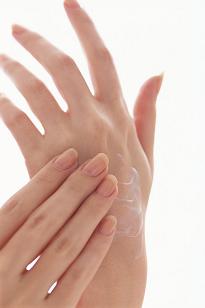If you’re like most people, you probably already know (and are possibly experiencing) the havoc winter inflicts on skin. From chapped lips to cracked, dry hands, your skin takes a real beating in the chillier months—even here in Charleston!
Make healthy skin a priority this winter with these tips to combat the cold and keep your skin nourished all season:
- Ask your doctor. First and foremost, when in doubt about your skin condition, it’s best to seek professional guidance. Going to an esthetician or dermatologist even once is a good investment because such a specialist can analyze your skin type, troubleshoot your current skin care regimen, and give you advice on the skin care products you should be using.
- Invest in a good moisturizer. Your skincare needs vary depending on the season. Even if you love the moisturizer that kept your skin silky-smooth all summer, your skin demands a more hydrating lotion in the winter. Opt for a moisturizer that’s oil-based, rather than water-based, as the oil will create a protective layer on the skin that retains more moisture than a cream or lotion. You can also look for lotions containing “humectants,” a class of substances that attract moisture to your skin.
- Slather on the sunscreen. Sunscreen isn’t just for summertime. Exposure to the winter sun can still damage your skin, increase the signs of aging, and cause skin cancer. Try applying a broad-spectrum sunscreen to your face and your hands (if they’re exposed) about 30 minutes before going outside.
- Give your hands extra attention. The skin on your hands is thinner than on most parts of the body and has fewer oil glands, meaning it’s harder to keep your hands moist. In cold, dry weather, your hands are especially prone to itchiness, dryness, and cracking. Be sure you have moisturizer at the ready when you travel, and always wear gloves when you go outside.
- Avoid wet clothing. Wet socks and gloves can irritate your skin and cause itching, cracking, sores, or even a flare-up of eczema. Keep your body warm and dry this winter, and add layers for more protection.
- Don’t forget your feet. Try finding thicker lotions that contain petroleum jelly or glycerine—your feet will thank you. If your feet are dry, be sure to use exfoliants to get the dead skin off so that your moisturizer will sink in faster and deeper.
- Reconsider your facial cleanser. If you’ve been battling the dry-skin blues all winter, try avoiding peels, masks, or alcohol-based face cleansers—they’re likely stripping vital oil from your skin. Opt for foaming cleansers and masks that are “deeply hydrating,” rather than clay-based, to save your skin’s natural moisture.
- Plug in the humidifier. Humidifiers get more moisture in the air, which helps prevent your skin from drying out. To disperse moisture throughout your home, you may want to place several small humidifiers around the house.
- Protect your pout. Be sure you’re armed this winter with the most soothing lip balm you can find. Double-check to make sure it has sunscreen to keep your lips nourished and smooth.
How do you keep your skin healthy all winter long?







